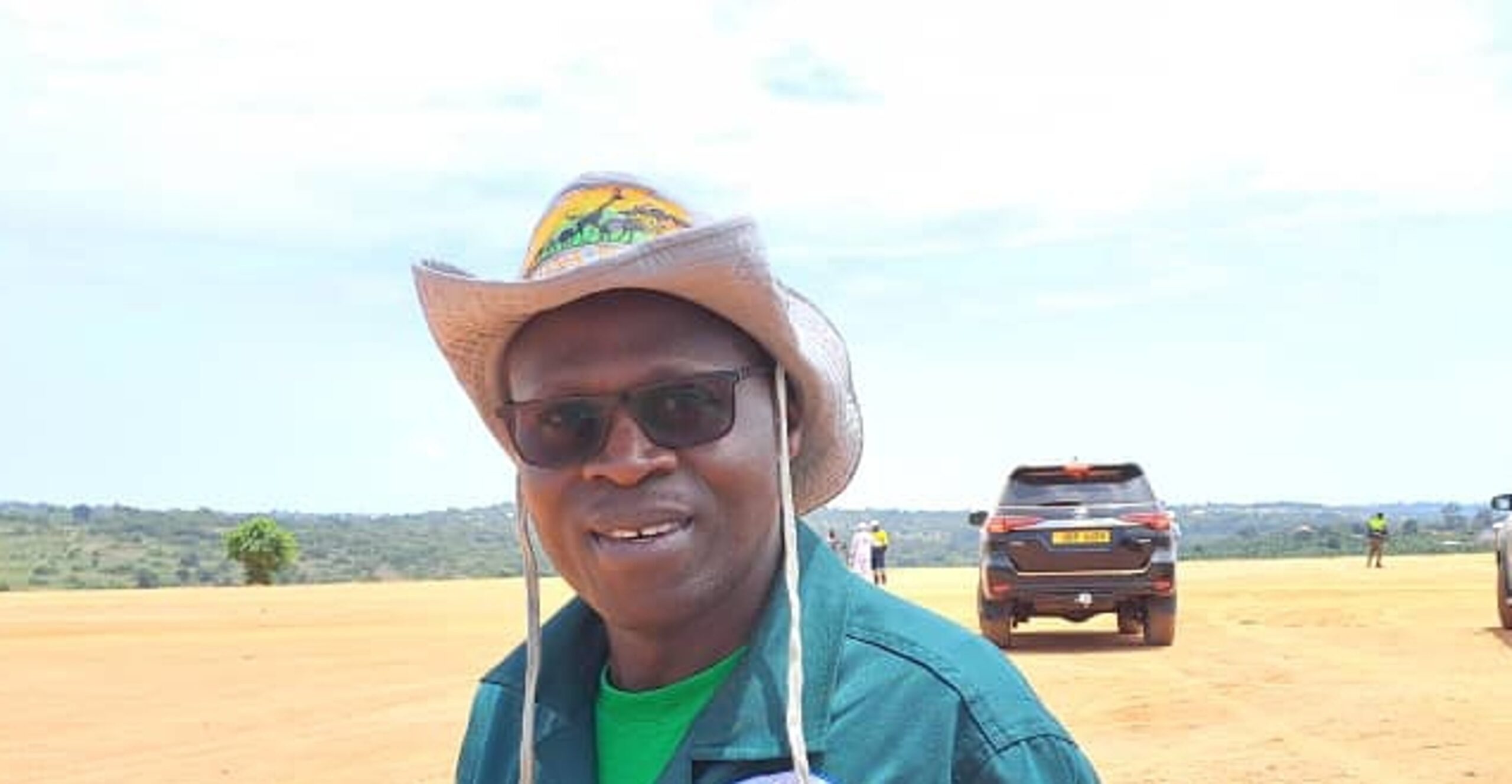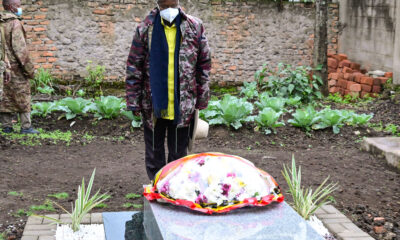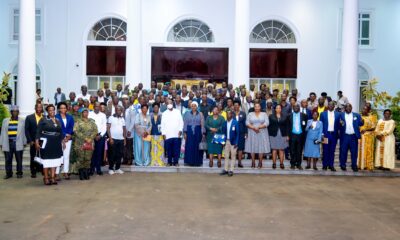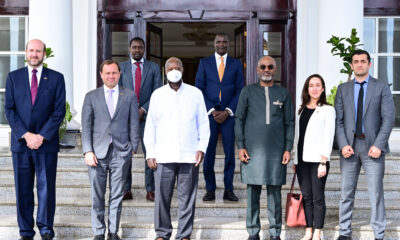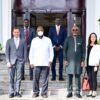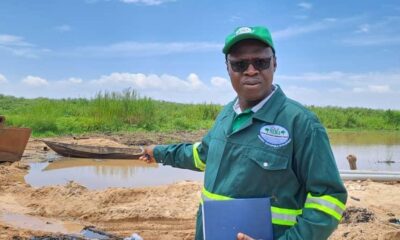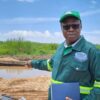Opinion
A Cautionary Tale of Bisobye: President Museveni’s Call to Save Uganda’s Environment
By William Lubuulwa
Delhi, Tuesday 5th November: His Excellency President Yoweri Museveni stood before me in the most unusual setting – a vast, barren wasteland stretching as far as the eye could see. I wasn’t sure how I got there or where exactly we were, but it was clear from the President’s stern look that this place was significant. I was ready to engage him because this was a rare chance to get my share of the cake from the Fountain of Authority in our country.
“William,” he began, his voice heavy with authority, yet tinged with concern, “This is Bisobye, a land much like Uganda was before. Look around you.”
As I looked, I saw what once must have been a lush, green landscape now reduced to a barren, lifeless desert. The ground was cracked, and parched under an unforgiving Sun. The trees that had once towered here were replaced by empty stumps and dust storms swirling in the wind. In the distance, I noticed what appeared to be the skeletal remains of a factory, its smokestacks long silent. The air itself seemed to choke with the weight of pollution.
“This,” the President said, gesturing with his hand, “is what happens when a country forgets the value of its environment. This is Bisobye’s tragedy.”
Greed or Green?
He pointed to the horizon where once a great forest must have stood. “The Bisobye Environment Monitoring Agency – their version of our own NEMA – was supposed to protect their environment. But instead of doing their duty, they allowed greed to take root. The people cut down trees for fuelwood, for timber, for farming, and for quick money. And now, where is Bisobye? Nowhere.”
I followed his gaze to the barren landscape, understanding more with every word. “In Uganda, we still have our forests, our wetlands, and our wildlife, but for how long if we do not act?”
He led me through this deserted land, where we came upon what used to be a wetland, now replaced by sprawling concrete structures, abandoned and half-sunk into the soil. The wetlands, once vital for filtering water and preventing floods, were now a wasteland. “The Wetlands Management Corporation in Bisobye gave away their wetlands for buildings, factories, and roads. They thought it was development. But without the wetlands to absorb water, the floods came. And with the floods, came loss of lives.”
I turned to him, feeling a deep discomfort as we walked. “Is this what could happen to our Lubigi, Rwizi, Namatala and other wetlands?” I asked.
His Excellency nodded slowly, his expression gloomy. “If we don’t protect them, William, our wetlands will suffer the same fate. And without wetlands, no amount of money can buy back what we lose.”
Case for Waste Management
We shifted again. Now we were standing in the middle of what used to be a vibrant city, much like Kampala, but instead of bustling streets and thriving markets such as Nakasero or St. Balikuddembe, there were piles of garbage everywhere. The stench was overwhelming. We were in Bisobye’s capital, Kyakusaaga, where the Kyakusaaga Capital City Authority had long given up on waste management. The streets were lined with trash, and what were once beautiful city water channels had become toxic streams of industrial or domestic waste and sewage.
“William, this is what happens when waste management is left to decay. Private companies, just like the ones in Uganda, failed the people. They collected bribes but forgot the trash. Bisobye’s capital became a landfill, and the people paid the price with their health and dignity.”
I shuddered, thinking of the Kiteezi Landfill and the struggles we already face in waste management back home. Could we really be on the same path?
Suddenly, we were in what could only be described as a ghost town. At the side where wildlife should have been mingling with rewarding tourism, there was nothing but silence. His Excellency pointed to the distance, where once majestic elephants roamed freely, replaced now by emptiness. “Bisobye’s Wildlife Authority let their animals be slaughtered for ivory, for profit. The people sold their pride for a few coins that could not even secure lunch in Makerere’s Kikumikikumi Market. Now their animals are gone – and gone for good. Do we want Uganda to lose its lions? Its elephants just like Bisobye did?”
My heart pounded as I realised the scale of the loss. Bisobye had traded its rich biodiversity for quick wealth. The wildlife that should have roamed freely was now just a memory.
Chances for Uganda
His Excellency paused, his gaze piercing into me. “Uganda still has a chance, William. We can still protect our land, our trees, our wildlife, and our wetlands. But we must act now. Bisobye thought they had time. They thought nature could be bargained with. But look at them now.”
Just as I was about to speak, the ground beneath us began to tremble. In the distance, I could see a great mountain of waste – the Great Kikasa Dumpsite – erupting in flames. The air filled with black smoke, and the fire spread rapidly, consuming everything in its path. “This is what happens when a nation doesn’t deal with its waste,” the President said solemnly. “When you ignore the problem long enough, it comes back to swallow you whole.”
I felt a deep sense of responsibility, as if the future of Uganda’s environment lay heavy on my shoulders, yet I just speak for it. And then, as if in slow motion, His Excellency turned to me one last time and spoke words that echoed deep within my soul.
“William, do not let Uganda become the next Bisobye. Protect our land. Speak to our people. Guide them. We are stewards, not owners, of this earth.”
Just as he finished speaking, I felt a sudden sensation of movement. My eyes opened. The hum of an airplane engine filled my ears, and I realised I was on a plane. We were touching ground at Rajiv Gandhi International Airport, and it had all been a dream! But was it? The message felt so real, so urgent. I could still hear the Old Man With a Hat’s voice in my head: “Protect our land.”
My Only Prayer
The dream wasn’t an ordinary dream – it was a warning. A warning to all Ugandans to change behaviour. We still have the chance to protect our environment, but only if we ACT now.
Let us not follow the path of Bisobye. Let us protect our forests, our wetlands, and our wildlife, and our environment in general. Also, let us manage our waste responsibly. Our future depends on the choices we make today. Our environment is not for sale – it’s our legacy.
Mr. Lubuulwa is the Senior Public Relations Officer at NEMA.


